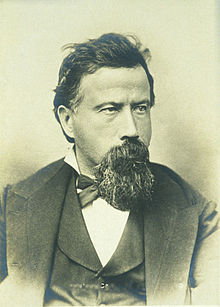Biography
(b Paderno Fasolaro [now Paderno Ponchielli], 31 Aug 1834; d Milan, 16 Jan 1886)
Italian bandmaster, orchestra conductor, and professor of composition. He was the most important opera composer (Verdi apart) between the mid-19th century and the advent of the so-called ‘Giovane Scuola.
Ponchielli was a highly accomplished musician, whose misfortune it was to have grown up during a difficult period of transition in Italy’s musical history. This transition occurred in a climate of controversy, of awareness of other cultures, and of innovative approaches to reviving Italian musical culture from the stagnation of conventional melodrama of the Risorgimento. The two new and contrasting role models were the spectacle of French grand opera and the dramatic symphonic effects of Wagnerian opera. To deal with this critical situation, Italian composers of the new generation sought experimental solutions that were often not well accepted by audiences and critics. Up to 1872 Ponchielli had remained on the sidelines of the powerful and competitive world of Italian theater opera. He was perhaps further handicapped at the beginning of his career by a lack of self-confidence and a retiring temperament which put him at a disadvantage in the competitive world of the theatre, and the success he obtained would have been impossible without Ricordi’s efforts on his behalf. Even considering that he never took charge of operatic structure as Verdi had done, and that the focus of his dramaturgy remained the melody itself as an expression of the libretto, his contributions were decisive to the ultimate solution during this critical period. Thus, he must be defined as the central figure of the transition. Ponchielli recognized the new climate and, in spite of the way his academic education might have influenced him to be more deferential towards the conventions of the past and cautious in the direction of innovation, he, nevertheless, readily gravitated towards the coming aesthetic. His theater operas can be viewed as of two contrasting styles: the first intended for La Scala under Ricordi’s strong control, displaying the spectacle and grandiosity of grand opera, and the second combining his genuine dramatic instinct and lyrical flair to reveal a more intimate character as found in the second edition of Lina and in Marion Delorme. It was the latter that impelled Italian opera to the fin de siècle.
